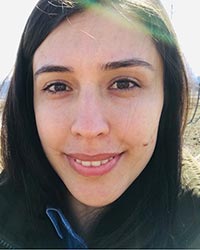Pedicel effects on final fruit size in apple

Regulation of fruit size is a major economical factor for numerous horticultural crops. Specifically, in apple (Malus × domestica Borkh.), increases in fruit size will result in increased market value. Many factors play a role in determining final fruit size in apple, some of which have been well studied. Besides being responsible for the attachment of fruit to the tree, the pedicel also provides a connection between the fruit and the source of water and nutrients. Therefore, we hypothesized that the pedicel can be a factor that is involved in the regulation of apple fruit size. Accordingly, this study was conducted to determine the relationships between final fruit size and pedicel size and anatomy. We used 10 apple genotypes differing in fruit size from 1 to 336 g. During two consecutive years, apple fruit size and both pedicel diameter and length were measured and analyzed. Our results demonstrated that among the genotypes, pedicel diameter was positively correlated with final fruit weight at harvest. In contrast, pedicel length was significantly negatively correlated with fruit weight. Additionally, the number of tracheary elements in the pedicel was positively correlated with fruit size among the genotypes. In conclusion, genotypes with large fruit size had a large diameter, short pedicel, with both large and numerous tracheary elements.
Seval Taski won an ISHS Young Minds Award for the best poster presentation at the the International Symposium on Evaluation of Cultivars, Rootstocks and Management Systems for Sustainable Production of Deciduous Fruit Crops at the IHC2018 in Turkey, in August 2018. She is a horticultural engineer currently working in fruit crops production and breeding at Erzincan Horticultural Research Institute. She completed her BS and MS degrees at Adnan Menderes University, Turkey, in 2008 and 2012, respectively. She was then awarded a full scholarship from the Turkish Ministry of Education for a second MS degree. She obtained her second MS degree at Purdue University, Department of Horticulture in West Lafayette, IN, USA, in 2017. She now continues her Ph.D. study at Ataturk University in Erzurum, Turkey.
Seval Taskin, Erzincan Horticultural Research Institute 18, 24060 Erzincan, Turkey, e-mail: sevalsirin@gmail.com
The article is available in Chronica Horticulturae
Comments
Congratulation.